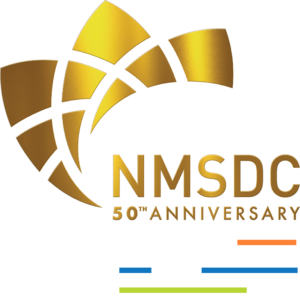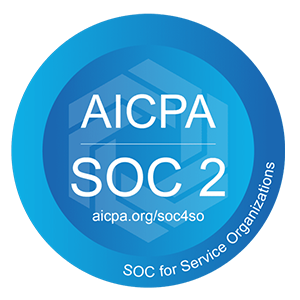Remote work, once a niche concept, has rapidly gained traction across various industries. The advent of digital technologies and the global shift caused by the COVID-19 pandemic have made remote work not only viable but often preferable. Businesses now recognize the advantages of having employees who can work from anywhere, leading to a significant increase in remote job opportunities.
This transformation has allowed companies to maintain operations without the constraints of a physical office, paving the way for innovative business models and flexible work arrangements. Understanding the landscape of remote work is essential for leveraging its benefits and overcoming its challenges.
Benefits of Hiring Remote Employees
Hiring remote employees offers a myriad of benefits that can significantly enhance a company’s operations and overall success:
- Cost Savings: One of the most tangible benefits of hiring remote employees is the reduction in overhead costs. Companies can save on expenses related to office space, utilities, and office supplies. Additionally, costs associated with employee relocation and commuting are minimized, making remote work a financially attractive option.
- Access to Global Talent: Remote work removes geographical barriers, allowing companies to tap into a global talent pool. This access to diverse skill sets and experiences can drive innovation and provide a competitive edge in the market.
- Increased Productivity: Studies have shown that remote employees often report higher levels of productivity. The flexibility to work in a preferred environment, free from office distractions, can lead to more focused and efficient work.
- Flexibility: Remote work offers employees the ability to balance work and personal life more effectively. This flexibility can lead to greater job satisfaction and retention, as employees appreciate the autonomy and trust placed in them by their employers.
Challenges of Managing Remote Teams
Managing a remote team comes with unique challenges that require thoughtful strategies to address:
- Communication Barriers: Ensuring clear and effective communication can be more difficult without face-to-face interactions. Misunderstandings can arise from written communications, and the lack of non-verbal cues can lead to misinterpretations. Implementing robust communication tools and practices is essential to mitigate these barriers.
- Time Zone Differences: Coordinating schedules across different time zones can be complex. It requires careful planning to schedule meetings and collaborative work sessions at times that are convenient for all team members. Leveraging asynchronous communication methods can help bridge the gap and maintain productivity.
- Building Team Cohesion: Fostering a sense of team unity and collaboration can require extra effort when team members are not physically together. Virtual team-building activities, regular check-ins, and creating opportunities for social interaction can help build a strong team culture despite the physical distance.
Defining Roles and Responsibilities
Clearly defining roles and responsibilities is crucial for remote teams. Each team member should have a well-documented job description outlining their tasks, goals, and expectations. This clarity helps prevent misunderstandings and ensures everyone is aligned with the company’s objectives.
Additionally, setting measurable performance metrics and regular check-ins can help track progress and provide guidance. When employees understand their roles and how they contribute to the broader goals, they are more likely to be motivated and engaged.
Finding the Right Remote Talent
Finding and attracting top remote talent requires strategic efforts. Utilize platforms like LinkedIn, Remote.co, We Work Remotely, and Upwork to find candidates. These platforms are specifically designed to connect employers with remote professionals, making it easier to find qualified candidates.
Create compelling job postings that highlight the benefits of remote work and your company culture. Emphasize aspects such as flexibility, opportunities for growth, and any unique perks your company offers. Including testimonials from current remote employees can also provide a persuasive insight into what it’s like to work for your company.
Interviewing Remote Candidates
Conducting remote interviews effectively is key to finding the right fit for your team:
- Best Practices for Remote Interviews: Use video conferencing tools to simulate face-to-face interactions. Ensure that both parties have a stable internet connection and a quiet environment to avoid disruptions. Prepare a structured interview format to keep the conversation focused and productive.
- Key Questions to Ask: In addition to standard interview questions, focus on assessing the candidate’s ability to work independently and manage their time effectively. Ask about their experience with remote work, preferred communication styles, and how they stay motivated and organized. Understanding their approach to remote work can help determine if they are a good fit for your team.
Assessing Skills and Cultural Fit
Evaluating both the skills and cultural fit of remote candidates is essential for building a cohesive and effective team:
- Tools for Skill Assessments: Utilize online assessment tools and platforms to evaluate technical and soft skills. Examples include coding tests for developers, writing samples for content creators, and project simulations for project managers. These assessments provide objective data on the candidate’s abilities.
- Evaluating Cultural Fit: Cultural fit is equally important in a remote environment. During the interview process, discuss your company’s values, mission, and work culture. Ask candidates about their own values and work preferences to gauge alignment. Additionally, consider having candidates meet with potential team members to assess interpersonal dynamics.
Onboarding Remote Employees
Creating an effective onboarding process for remote employees sets the foundation for their success:
- Effective Onboarding Process: Develop a structured onboarding plan that includes an introduction to the company, its mission, and its values. Provide detailed information about the team, roles, and responsibilities. Schedule regular check-ins during the initial weeks to address any questions and provide support.
- Essential Tools and Resources: Equip new hires with the necessary tools and resources to perform their jobs effectively. This includes providing access to communication and project management platforms, relevant documentation, and training materials. Ensuring they have a dedicated point of contact for support can help them acclimate more quickly.
Building a Remote Work Culture
Fostering a strong remote work culture is vital for team cohesion and morale:
- Fostering Collaboration and Communication: Encourage open communication and collaboration through regular team meetings, virtual brainstorming sessions, and collaborative tools. Creating channels for informal interactions, such as virtual coffee breaks, can also help build rapport among team members.
- Promoting Inclusivity and Engagement: Ensure that all team members feel included and valued, regardless of their location. Recognize and celebrate achievements, provide opportunities for professional development, and encourage participation in company-wide initiatives. An inclusive culture promotes engagement and loyalty.
Communication Tools for Remote Teams
Effective communication is the backbone of successful remote teams. Utilize platforms such as Slack, Microsoft Teams, Zoom, and Asana to facilitate communication and collaboration. These tools offer various features like instant messaging, video conferencing, file sharing, and task management.
Establish clear communication protocols, including response times, preferred channels for different types of communication, and regular check-ins. Encourage transparency and openness, and provide training on using communication tools effectively.
Project Management in a Remote Setting
Managing projects remotely requires specific strategies and tools. Use project management tools like Trello, Jira, Monday.com, and Basecamp to organize tasks, set deadlines, and track progress. These platforms provide visibility into project timelines and allow for efficient collaboration.
Implement regular progress updates and milestone reviews to ensure projects stay on schedule. Assign clear ownership of tasks and encourage accountability. Foster a collaborative environment where team members can share updates and seek assistance when needed.
Performance Management and Feedback
Regular performance management and feedback are essential for remote teams. Define clear performance metrics and goals for each team member. These should be specific, measurable, achievable, relevant, and time-bound (SMART). Regularly review progress against these goals and provide constructive feedback.
Schedule regular performance reviews to discuss achievements, challenges, and areas for improvement. Encourage open dialogue and provide opportunities for employees to share their feedback. Recognize and reward high performance to motivate and retain top talent.
Legal and Compliance Considerations
Navigating legal and compliance aspects of remote work is crucial:
- Understanding Labor Laws and Regulations: Be aware of the labor laws and regulations in the regions where your remote employees are based. This includes understanding tax implications, employment contracts, and benefits requirements.
- Ensuring Compliance with Remote Work Policies: Develop comprehensive remote work policies that address key aspects such as data security, working hours, and communication protocols. Ensure that all employees are aware of and adhere to these policies.
Supporting Remote Employee Well-being
Promoting the well-being of remote employees contributes to a positive work environment. Encourage employees to set boundaries between work and personal life. Promote flexible work hours and discourage overtime. Provide resources for time management and stress reduction.
Offer access to mental health resources, such as counseling services, wellness programs, and virtual support groups. Create a supportive environment where employees feel comfortable discussing their mental health needs.
Partnering with Remote Raven for Success
At Remote Raven, we specialize in connecting businesses with highly skilled remote professionals. Our comprehensive vetting and onboarding processes ensure that you get the best talent tailored to your specific needs. From project management to performance tracking, our team of experts is here to support you every step of the way.
Looking for a partner to help you thrive in the remote work landscape? Look no further than Remote Raven. We provide specialized, flexible, and reliable support to help you build and manage a successful remote team. Contact us now for a free consultation with our hiring experts and discover how we can elevate your remote work strategy. Visit us at Remote Raven to learn more.





